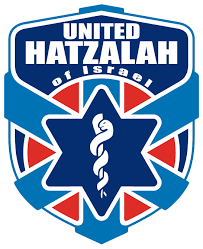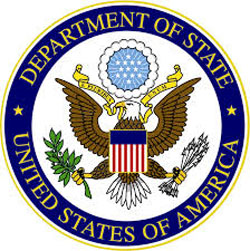Republican Jewish Coalition presses for U.S. – Israel Security Assistance Authorization Act
 The Republican Jewish Coalition has reaffirmed its support for the United States-Israel Security Assistance Authorization Act (HR 5141/S. 2497) and strongly encourages the U.S. Senate to complete action on the bill during this year’s session.
The Republican Jewish Coalition has reaffirmed its support for the United States-Israel Security Assistance Authorization Act (HR 5141/S. 2497) and strongly encourages the U.S. Senate to complete action on the bill during this year’s session.
Maintaining and strengthening the alliance between the U.S. and Israel is a vital national priority. The bipartisan US-Israel Security Assistance Authorization Act ensures that the alliance will continue on the strongest possible basis by codifying into law the 2016 Memorandum of Understanding on security assistance between the two nations and providing for expanded cooperation in the use of cutting-edge technologies in the years ahead.
Now that the House of Representatives has taken final action to approve this vital legislation, all that remains is for the Senate – which has already passed the bill once – to pass the final version and send it to the President for his signature.
It is imperative that the hard work that got the bill this far not be squandered. Accordingly, the Republican Jewish Coalition urges the Senate to pass the United States-Israel Security Assistance Authorization Act as soon as possible. — From Republican Jewish Coalition
*
750 from Israel and abroad attend United Hatzalah gala
 United Hatzalah of Israel held its first annual Gala Dinner event in Israel on Monday evening, Nov. 26. The event took place at Avenue Event Hall in Airport City and raised a significant sum for the all-volunteer first response emergency medical services (EMS) organization.
United Hatzalah of Israel held its first annual Gala Dinner event in Israel on Monday evening, Nov. 26. The event took place at Avenue Event Hall in Airport City and raised a significant sum for the all-volunteer first response emergency medical services (EMS) organization.
The organization fields a volunteer network of 5,000 volunteers from across the spectrum of Israeli society. Its members are made up of EMTs, paramedics, doctors and Psychotrauma and Crisis Response Unit personnel. One of the hallmarks of this EMS organization is that its entire budget comes from donations, of which 30 percent come from supporters in Israel.
Chairman of United Hatzalah’s Board Mark Gerson came in from the United States in order to attend the event as well as Renee Manger of the B.L. Manger foundation who donated a new ambuboat that will serve on the Kinneret to help those in need of marine rescue on Israel’s largest freshwater lake.
Manger dedicated the rescue boat in memory of her father and twin brother. Manger explained that when she was young, her father had a fishing boat called the Salty Mec. Her childhood memories are filled with being out on the water with family. As soon as the idea of donating a boat to save lives in Israel came up, the board of the foundation immediately knew this was how they wanted to support United Hatzalah. The boat was inaugurated during the Gala Dinner and is named after the one that Renee knew so well from her youth, Salty Mec II.
Tzvika Hadar emceed the event which was attended by more than 750 supporters and philanthropists from Israel and abroad. Among the many people who attended were leaders and CEOs of large corporations and businesses in Israel who value the work of United Hatzalah. — From United Hatzalah
*
Seventy-five organizations oppose proposed Pitzer College boycott of Israel
 Seventy-five civil rights, education, religious and student organizations on Thursday called on Pitzer College President Oliver to condemn the recent vote by the Pitzer Faculty Executive Committee to end the school’s study abroad program in Haifa. The news was first reported earlier this week by the Claremont Independent. The Pitzer College Council, a student and faculty governance board, will deliberate on the faculty vote and a student resolution denouncing the faculty later today.
Seventy-five civil rights, education, religious and student organizations on Thursday called on Pitzer College President Oliver to condemn the recent vote by the Pitzer Faculty Executive Committee to end the school’s study abroad program in Haifa. The news was first reported earlier this week by the Claremont Independent. The Pitzer College Council, a student and faculty governance board, will deliberate on the faculty vote and a student resolution denouncing the faculty later today.
“The Pitzer Faculty’s attempt to implement an academic boycott of Israel that subverts the educational opportunities and academic freedom of their own students and colleagues, is reprehensible. Pitzer faculty members have abrogated their most basic professional responsibility – to promote the academic welfare of their students,” wrote the organizations in the letter organized by AMCHA Initiative.
“While portrayed as an effort aimed at Israeli universities and scholars, in reality the implementation of an academic boycott will violate the rights of, and directly harm, students and faculty on U.S. campuses,” pointed out the groups in their letter. “…we call on you to act now by issuing a statement that condemns this Pitzer Faculty action and commits to ensure that no Pitzer student will be impeded from studying about or in Israel.”
The Palestinian Campaign for the Academic and Cultural Boycott of Israel urges faculty to shut down study abroad programs in Israel; refuse to write letters of recommendation for American students who wish to study in Israel; scuttle American colleagues’ research collaborations with Israeli universities and scholars; and cancel or shutdown American student- and faculty-organized education activities about Israel or featuring Israeli scholars or leaders. Earlier this fall, two University of Michigan faculty refused letters of recommendation to Michigan students applying to Israel study abroad programs.
Pitzer’s College Council will deliberate today about the faculty attempt to end the study abroad program in Israel, as well as a Student Senate resolution that denounces the attempt as one that “eliminate[s] student learning opportunities” in order to promote “a political agenda.” Student Senate Resolution 55-R-04 points out that “only the University of Haifa student abroad program was called into question without the same standards of review being applied to any other study abroad program” and that the faculty vote was “an abuse of power.” — From the AMCHA Initiative
*
U.S. contributing millions to fight famine in Yemen
 U.S. Secretary of State Michael R. Pompeo announced this week that the United States is providing nearly $131 million in additional emergency food assistance to the people of Yemen, who are suffering from the world’s largest humanitarian crisis and food-security emergency. This brings the total U.S. humanitarian assistance for the Yemen response to more than $697 million since the beginning of Fiscal Year 2018.
U.S. Secretary of State Michael R. Pompeo announced this week that the United States is providing nearly $131 million in additional emergency food assistance to the people of Yemen, who are suffering from the world’s largest humanitarian crisis and food-security emergency. This brings the total U.S. humanitarian assistance for the Yemen response to more than $697 million since the beginning of Fiscal Year 2018.
More than half of Yemen’s population needs emergency food assistance. Without current, large-scale international humanitarian efforts, the Famine Early Warning Systems Network projects the food security situation would be significantly worse for millions, including potential famine. Most of the new funding will provide life-saving food assistance through the UN World Food Program to reach nearly 9.5 million of the most vulnerable Yemenis.
During a food crisis, preventable disease is a leading cause of death. The State Department and USAID are working with partners to provide more Yemenis with life-saving assistance and ensure that food, safe drinking water, nutrition assistance, sanitation and hygiene services, and medical care are reaching individuals and areas at the highest risk of famine. State and USAID are also scaling up development and early recovery assistance to help address the underlying causes of the crisis and strengthen the ability of institutions to meet the needs of all Yemenis.
To deliver this critical assistance, relief supplies and aid workers must be able to move freely throughout the country. In addition, humanitarian and commercial imports–particularly fuel, food, and medicine–must be permitted to flow freely into all of Yemen’s points of entry without impediments or delay.
The United States is one of the largest donors of humanitarian assistance to the Yemen response, and remains committed to helping the people of Yemen. We welcome the recent contributions provided by other donors, and urge all donors to increase their level of support to respond to the rapidly growing needs.
Ultimately, no amount of humanitarian or development assistance will end this conflict. All parties must cease hostilities and support negotiations to find a peaceful solution and put an end to the suffering of millions. It is time to end this conflict, replace conflict with compromise, and allow the Yemeni people to heal through peace and reconstruction. — From the U.S. State Department
*
Preceding items culled from news releases. Please send yours to editor@sdjewishworld.com